NATO must continue to deter its external adversaries, principally Russia, write Norman Eisen and James Kirchick. But democratic regression among its own members makes that task more difficult. This piece originally appeared on July 11 in the Washington Post.
As Western leaders gather in Brussels this week for their annual NATO summit, the Atlantic alliance faces a daunting set of challenges: Middle East instability, an ongoing mission in Afghanistan and, above all, a resurgent Russia, which has overturned Europe’s security order in Ukraine, used chemical nerve agents on British soil, and continues to deploy instruments of hybrid warfare against the United States and other alliance members. President Trump’s repeated suggestions that NATO is “obsolete” and freeloading on American largesse risk damping public support for the alliance that rushed to America’s aid after 9/11.
These threats are paramount. Often overlooked, however, is the threat from within: NATO member governments gradually undermining their own democratic institutions, unraveling the common tie between members of an alliance “founded on the principles of democracy, individual liberty and the rule of law,” and thereby undercutting it as an effective guarantor of the “freedom and security of all its members.”
Yes, NATO must continue to deter its external adversaries—principally Russia. But democratic regression among its own members makes that task more difficult.
In alliance states like Turkey, Hungary and Poland, the rise of authoritarian parties by democratic means has led to crackdowns on those same democratic processes that brought them to power. Other member nations, ranging from Slovakia (where a journalist investigating government corruption was recently assassinated) to the Czech Republic (whose Freedom House national democratic governance ranking declined over the past year) to the United States itself (where Trump, the ostensible leader of the free world, routinely lavishes praise on Russian President Vladimir Putin), exhibit worrying trends. All have been countered to varying degrees by pushback among civil society, the judiciary and independent media. Nonetheless, this rising illiberal tide risks exposing NATO members to Russian subversion, thereby reducing the alliance’s cohesion and effectiveness, and weakening its important post-Cold War role as a consolidator and defender of democracy. While NATO has completed several out-of-area missions in places ranging from the Balkans to Afghanistan to Libya, many today question whether the alliance would militarily defend one of its own member states.
This is not the first time NATO has faced democratic backsliding within its ranks. At the alliance’s creation in 1949, authoritarian Portugal was a founding member; it would remain a dictatorship until 1974. When a group of Greek military officers launched a coup against their democratically elected government in 1967, NATO did not expel the junta-led regime. Nor did the alliance move against Turkey when its military repeatedly overthrew various civilian administrations.
Such decisions to overlook the authoritarian character of certain NATO members could—and were—justified as the sort of necessary evil compelled by the Cold War’s bipolar logic: Soviet communism was the preeminent threat to the West and, whatever their faults, the authoritarian regimes in Greece, Turkey and Portugal were reliably anti-communist.
Today, the geopolitical situation has changed dramatically. While Russia has reemerged as the principal ideological and strategic adversary of the West, no longer does the Kremlin espouse Marxist-Leninism but rather a cynical illiberalism that exploits corruption, nativism and strongman rule. Moscow has gone from being a revolutionary power to a reactionary one. But its antagonism toward the United States and its allies remains. The Kremlin perceives Russia’s national interest as destabilizing Western institutions like NATO and the European Union, and the increasingly illiberal governments across the West—the sort that, during the Cold War, would have been resolute foes of Soviet influence—can today be low-hanging fruit, ripe for Russian picking.
That’s why both of us have joined a bipartisan working group urging NATO heads of state to use their summit this week as an opportunity to explicitly and concretely reaffirm the alliance’s commitment to democratic norms and institutions espoused in NATO’s founding document, the Washington Treaty. Such a reaffirmation will begin to put pressure on wayward member states to desist in their assaults on judicial independence, press freedom and governmental checks and balances. As the president carries his message of greater burden-sharing to Brussels, he and his counterparts should urge a recommitment to the alliance’s democratic values.
To reverse the democratic backsliding among its members, NATO states will have to think creatively. One proposal suggests abandoning NATO’s consensus rule, whereby the alliance’s substantial decisions require unanimous consent, in favor of the European Union’s “qualified majority” voting mechanism. As Celeste Wallander, a former senior director for Russia and Central Asia affairs on the National Security Council, writes for Foreign Affairs, “If the cohort of backsliders grows, NATO may find itself with a bloc within the alliance bent on protecting illiberal democracy.” Most E.U. decisions require a “qualified majority,” the agreement of 55 percent of member states representing 65 percent of the E.U. population for a proposal to pass. If the E.U. rule were adopted by NATO, this would allow a supermajority of alliance states to pressure backsliding members much as the E.U. has been doing with Poland, whose government is attempting to undermine the independence of the country’s judiciary. NATO could also allocate greater resources to monitoring and reporting on the democratic practices of all aspiring and current alliance members, in the same way that another transatlantic, intergovernmental body, the Organization for Security and Cooperation in Europe, does, issuing regular reports on electoral transparency.
Multilateral institutions alone, however, cannot solve a problem of this magnitude; domestic forces in each member state will ultimately be their own best defense against democratic decline. On a bilateral basis, individual NATO governments must bolster pro-democracy forces and democratic institutions inside other member states, reemphasizing the values dimension that undergirds what is primarily a security alliance. This support could include revoking travel rights of corrupt officials, increasing funding for independent media and doubling down on efforts to promote free and fair elections.
Since it was founded in the ashes of World War II, NATO has helped ensure the greatest period of global peace and prosperity. It’s no exaggeration to say that NATO is the most successful military alliance in history; not once has a member state faced the conventional invasion of its territory. But as threats to liberal values emerge from within, NATO’s mission of safeguarding democracy from external assault will be for naught if the alliance fails to uphold democracy at home.
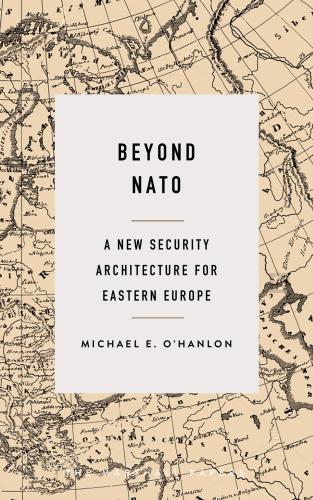
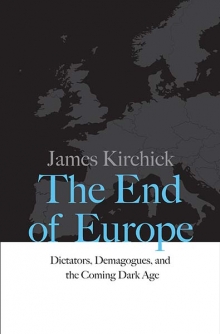
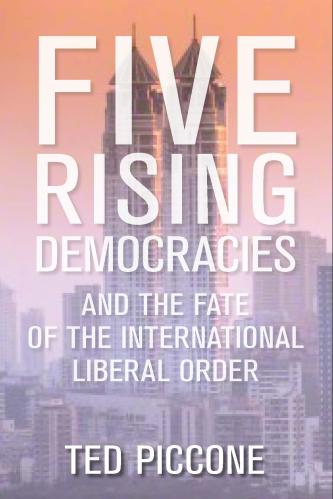
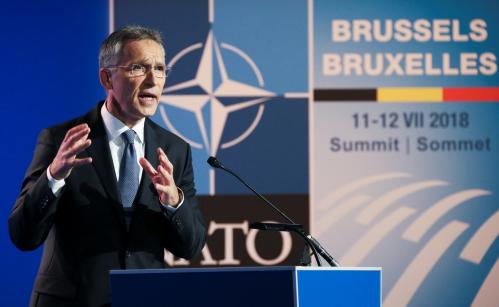
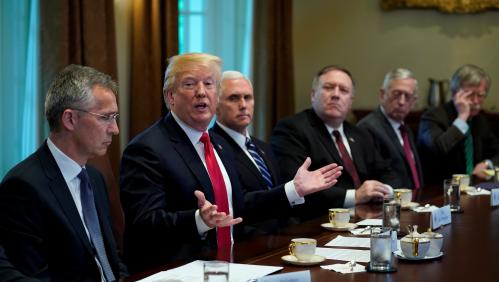





Commentary
Yes, Russia is a threat to NATO. So are the alliance’s anti-democratic members.
July 14, 2018